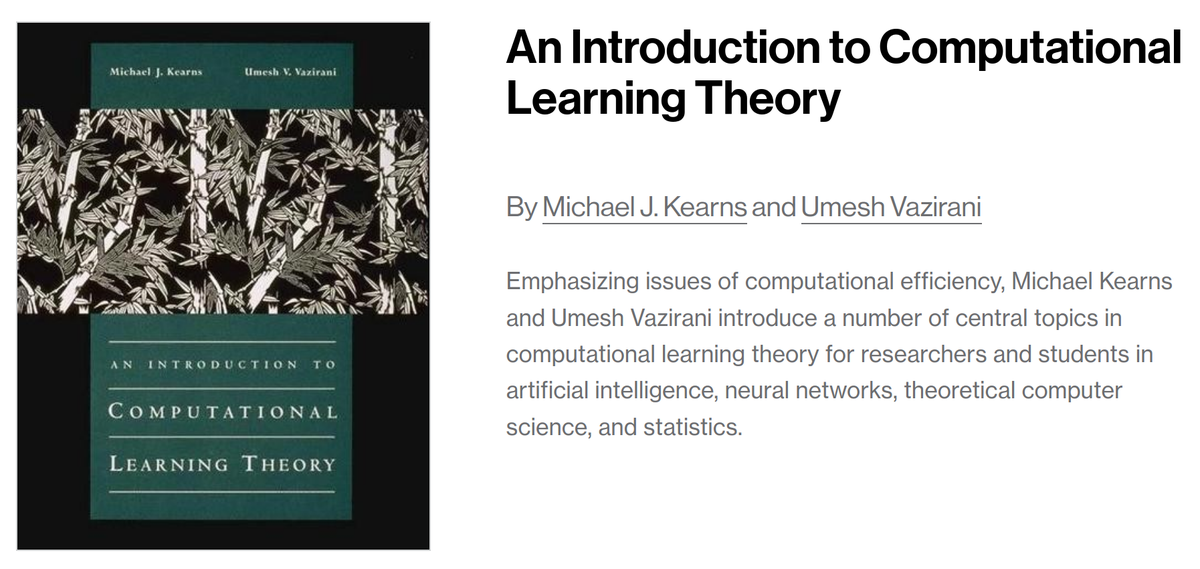Not a quiz on online learning. Though there was an (online learning) component on that online (learning quiz), which maybe led to some learning online, so... I am confused now.
1/16
Q1 asked what quantity, if any, captured PAC-learnability. 71.3% got it right...
2/16
That's, arguably, *the* cornerstone of statistical learning/computational learning theory. There are many great books+lecture notes about this, e.g., this one...
3/16

4/16
I am sorry to say that as far as I know, it's the 19.7% going with unicorns who got it right... 🦄 We have, even now, very little understanding of those...
5/16
6/16
7/16
* So, basically, a learning model equivalent to my middle school Latin teacher.
8/16
What is...
9/16
people.cs.umass.edu/~akshay/course…
Anyways. It's combinatorial, depends only on the class 𝓒 to learn, and it captures exactly the right thing!
10/16

By this I mean (approximate) (ε,δ)-DP: for small ε and δ, the output reveals very little about any single data point from the training set.
11/16
Why? How? I wish I knew...
12/16
13/16

🎥 sites.google.com/site/plustcs/p…
or watch yesterday's #COLT2020 keynote by Salil Vadhan, which touches upon this: colt2020.org/virtual/speake… (the 🎥 recording will be online at some point, I believe)
14/16
Also, I want to mention that for a different notion of privacy, *local* privacy, a recent work of Edmonds, Nikolov (@thesasho), and Ullman provides some analogue of..
15/16
What about other notions: pan-privacy, shuffle privacy? What about interactivity?
So many questions!
16/end
Also, for "pure" (ε,0)-DP PAC learning (no δ), a ≠ characterization was obtained in jmlr.org/papers/v20/18-…



